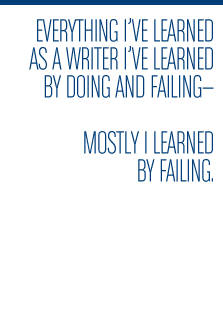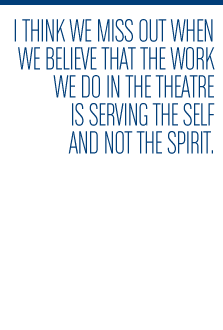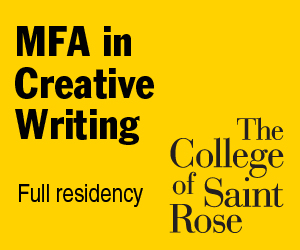Interview: Daniel MacIvor, Canadian Playwright on the Art of the Monologue
INTERVIEW: PLAYWRIGHT & ACTOR DANIEL MACIVORBy Paden Fallis, Performing Arts Contributing Editor It was in 2000 that I was first introduced to the work of Daniel MacIvor when I saw his three-person play, Never Swim Alone, at the Soho Playhouse in New York. The next day, I rushed my headshot to the house manager, asking him to pass it along to the production team in hopes that I might be able to understudy or be considered as a replacement (what do you want to bet he followed suit…?). Such was the impact of my first exposure to MacIvor’s work. After seeing Never Swim Alone, I began to read MacIvor’s works and quickly found myself taken with his many one-man shows. House, Here Lies Henry, Monster, and Cul-de-sac are just a few that grabbed my imagination with their bold theatricality, vivid characterization, and compelling stories. MacIvor has been a force in Canadian theatre since the late 80’s and his shows continue to receive productions all over the globe. He was kind enough to open up to stated about his work as a monologist. |
||||||||
 |
||||||||
 |
stated: In the author’s preface to your first plays, See Bob Run and Wild Abandon, you say that a one-person show “is not so much a performance as an admission,” and that the admission “must never be restricted.” As you go along in your career, do you find that admission harder to not restrict or are you even more determined to admit us in? DANIEL MACIVOR: I’m working on a new solo right now that is inspired by the life and work of Spalding Gray—and I suppose to say “life and work” seems redundant in his case. But even with Gray—where there seemed to be no separation between the life and the story, there were certain restrictions. In my case, I have always disguised the admission with invented narrative or metaphor. Is it more difficult now? Not really; it’s different because I have more awareness around what is “true” and what is fiction. And more awareness about the fiction of everything. I suppose the difficult thing becomes believing that one’s stories are of interest to others. stated: The one time I met you, after your New York run of your one-man play Cul-de-sac, you told me that you wrote your first play before you saw your first play. How has that informed your work? Not just initially, but to this day? DANIEL MACIVOR: I come to writing for the theatre with no formal training; I studied acting but never writing. Everything I’ve learned as a writer I’ve learned by doing and failing—mostly I learned by failing. I guess that means that I work from a more intuitive place, which can be good and bad. Good in that it means I don’t over-think an idea initially and bad because I sometimes get confused in the difference between intuition and fear. stated: Why solo shows? What does your work as a monologist offer you that film and multi-character shows don’t? DANIEL MACIVOR: That’s a very good question since I’m at the beginning of a new solo and asking that question a lot these days. The answer I seem to have come up with is that the theatrical communion between the stage and the seats is at its most pure in the solo relationship. With multi-character work, one must weave a kind of web of energy that connects with an audience in a way that the solo show is built on a more direct energy exchange. The weaving is a fascinating work, though. Like a kind of architecture of energy. I suppose it feels like with a multi-character play one is building a house for the audience and with a solo one is making them a meal. And film? Film doesn’t really figure into the equation. It’s apples and cats. |
|||||||
 |
||||||||
 |
||||||||
 |
stated: One of my directors sees a distinction between one-person shows and one-person plays. Shows, she says, are clearly autobiographical narratives, while plays are fictional characters and scenarios created from scratch. I would tend to put you in the latter category, but I watched an interview in which you took umbrage when the interviewer said your plays were not autobiographical. First off, do you agree with the distinction my director friend makes and, if so, where do you see your work falling? DANIEL MACIVOR: I suppose that makes sense. Although I call my solos shows I think of my solos as plays rather than confessionals. That’s where metaphor comes in. Yet I can look back at the solos and see how the energy that made each was coming directly from my life at that time in a spiritually autobiographical way. Perhaps they start out as plays and in retrospect become shows. I guess I think of solo shows as “the writer is the performer” and solo plays as “the writer is not the performer”. On that front though, if a show is performed by another actor who is not the writer some time later does it become a play? |
|||||||
 |
||||||||
 |
|
|||||||
|
stated: When I am either writing a play or rehearsing a role, I always come back to Linda Loman’s classic line from Death of a Salesman when she gives a full-throated defense of her husband Willy by saying, “Attention must be paid.” These four words serve to anchor me as I remind myself that every character is precious and that everyone has a story to tell. Do you have a mantra or favorite quote or idea that keeps you on point? DANIEL MACIVOR: There are a few things that come to mind; one is something I found many years ago in a particularly philosophical fortune cookie that said, “Stop trying to please people who don’t know what they want”—and for me this is a reminder less about the audience and more about artistic directors. Another is something that a mentor of mine, the playwright John Murrell, once told me, “The empty page is perfect and every mark you make upon it is a failure,” which for me keeps me questioning the essential nature of every phrase, every word. And the third is something that my working partner Daniel Brooks once said and I have taken to telling young writers when they ask, “How do I write a play?” The answer being, “Book a venue.” stated: What inspires you in the theatre today and, conversely, what do you think we are missing out on? DANIEL MACIVOR: I am inspired by any work that manages to explode from the force of ego without celebrating it and in the end exposes the ego as the prick it is and crushes it mercilessly. I think we miss out when we believe that the work we do in the theatre is serving the self and not the spirit. |
||||||||
 |
||||||||
| (Photo Courtesy of The Benff Centre) | ||||||||
|
|
||||||||
|
Visit Daniel MacIvor: |
||||||||












 Paden Fallis
Paden Fallis
Reader Comments